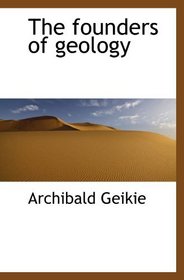Search -
The founders of geology
The founders of geology
Author:
Purchase of this book includes free trial access to www.million-books.com where you can read more than a million books for free. This is an OCR edition with typos. Excerpt from book: CHAPTER III Scientific CosmogonistsóDescartes, Leibnitz. Speculations of De Maillet and Buffbn. Early illustrated works on fossil plants and animalsóLang, Sch... more »
Author:
Purchase of this book includes free trial access to www.million-books.com where you can read more than a million books for free. This is an OCR edition with typos. Excerpt from book: CHAPTER III Scientific CosmogonistsóDescartes, Leibnitz. Speculations of De Maillet and Buffbn. Early illustrated works on fossil plants and animalsóLang, Sch... more »
ISBN-13: 9781113725912
ISBN-10: 1113725915
Publication Date: 9/24/2009
Pages: 310
Rating: ?
ISBN-10: 1113725915
Publication Date: 9/24/2009
Pages: 310
Rating: ?
0 stars, based on 0 rating
Publisher: BiblioBazaar
Book Type: Paperback
Other Versions: Hardcover
Members Wishing: 0
Reviews: Amazon | Write a Review
Book Type: Paperback
Other Versions: Hardcover
Members Wishing: 0
Reviews: Amazon | Write a Review




